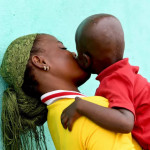Perhaps one quarter of people living with HIV around the world have high blood pressure, aidsmap reports.
This finding comes from a study published in the Journal of Hypertension in which researchers analyzed 194 studies from around the world conducted between 2007 and 2017. Between them, the studies included nearly 400,000 people living with HIV.
The study defined high blood pressure as having blood pressure of 140 over 90, taking medications to control the condition or both.
Twenty-four percent of the pooled participants had high blood pressure, including 28% of those in Europe and North America, 24% of those in West and Central Africa, 22% of those in Latin America and the Caribbean, 20% in Eastern and Southern Africa and 17% in Asia and the Pacific.
Twenty-seven percent of people taking antiretroviral (ARV) treatment had high blood pressure, compared with 16% of those who were not on HIV treatment. Twenty-six percent of those participating in studies started after 2011 had the condition, compared with 20% of those in the earlier studies—a phenomenon the study authors said was likely the result of wider use of ARVs.
The investigators theorized that more widespread use of ARVs in Europe and North America was likely a key reason why high blood pressure rates were higher there compared with other regions. Certain HIV medications can directly raise high blood pressure. But also, people on ARVs live longer, which moves them into an older age bracket in which blood pressure rates naturally go up.
“Cost-effective strategies to curb the dreadful burden of [high blood pressure] among [people with HIV] are needed,” the study authors concluded.
To read the aidsmap article, click here.
To read the study abstract, click here.







Comments
Comments